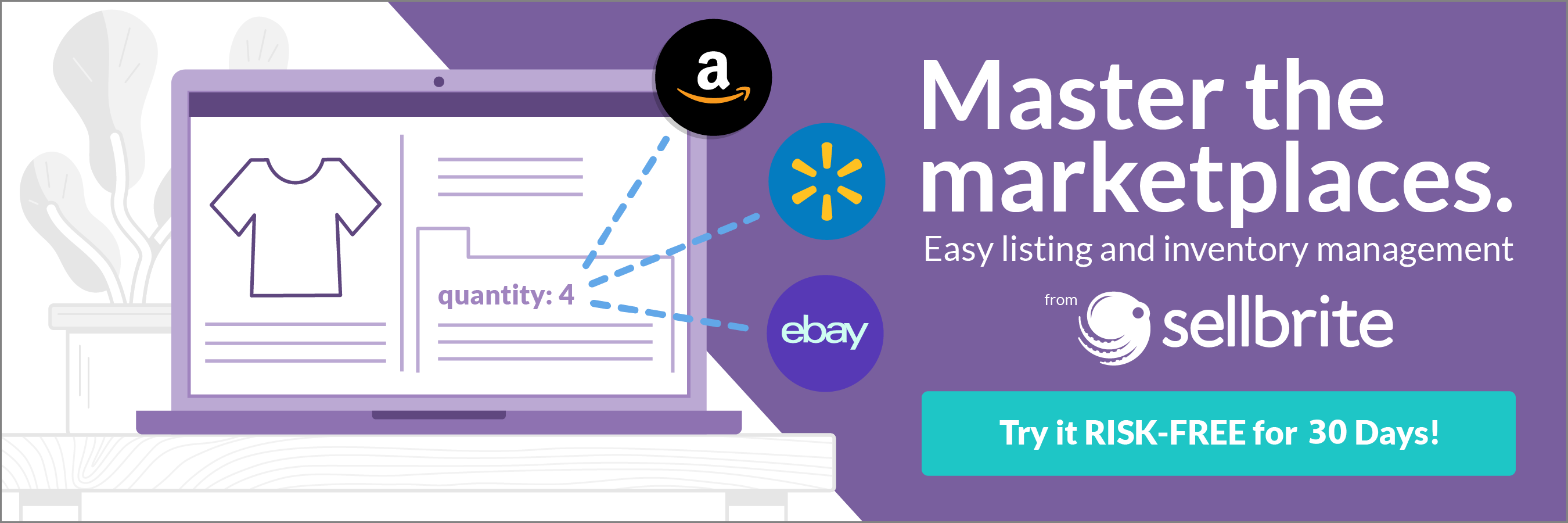5 Reasons to Create an Affiliate Marketing Program for Your Ecommerce Site
Do you know the most cost-effective way to generate a steady stream of new customers? If your answer is “no”, you’re not alone. Hundreds (if not, thousands) of business strategies exist–each one having their own advantages, disadvantages and expected return.
A model that might make its way onto your “to try” list is affiliate marketing.
After all, it’s an industry with an estimated worth of $13 billion.
I’m here to tell you the reasons why you need to be working with affiliates to grow your ecommerce business.
Oh, and don’t worry: I’m not going to share any case studies of spammy websites who’ve made millions through affiliate marketing. Those stories often lie pretty close to the “make $500/second with dropshipping in two weeks” BS stories.
But, done right, affiliate marketing can be a way to grow your business–fast.
Ready? Let’s dive in.
What is affiliate marketing, anyway?
Before we take a look at why you need to be using affiliate marketing to your advantage, let’s get the basics covered and understand exactly what it is.
Here’s the simple explanation:
Affiliate marketing happens when a group of people (known as ‘affiliates’) promote your products online, in return for commission. These affiliates have special links with tracking codes, allowing ecommerce retailers to track:
- Which product an affiliate has sold
- How many products an affiliate has sold
- The total revenue an affiliate has generated
Affiliates can be bloggers, influencers, social media stars, vloggers–you name it. If they’ve got their own online community, they’re a potential affiliate for your online store.
Affiliate marketing vs. influencer marketing
…That’s a pretty fine line–and something many people get wrong.
Unlike influencer marketing (where priorities are often to improve trust and brand awareness), affiliate marketing focuses heavily on sales.
After all, an affiliate can’t generate their commission if they’re not driving sales.
Can you use influencers as affiliates? Absolutely. But it’s worth noting that influencer marketing is more of a marketing strategy, and affiliate marketing is a business model.
5 reasons to create an ecommerce affiliate program
“Do I really need an affiliate program?”–that’s a question on many retailers lips.
My hope is that once you’ve read these five reasons why they’re great for ecommerce businesses, you’ll answer with confidence, “yes.”
1. Affiliate programs are cheap to set up
We all want to generate the highest possible profit margins, and reduce customer acquisition costs (CAC), right?
That’s why affiliate marketing programs are excellent for online retailers.
You don’t need 15 fancy tools, a dedicated team department or a hefty advertising budget to get started. Software to manage affiliate programs is very cheap, and your program can kick-off with just one team member taking responsibility.
David Barbour, Co-founder of Vivio Life Sciences, told me how this cost-effective element means there’s no better time to start affiliate marketing. He said:
“With simple, cost effective platforms that centralize everything from; automatic payments, affiliate registration, affiliate link generation, file storage that both merchant and affiliate can access, and message boards for direct contact, it has never been a better time to work with affiliate.”
Want to use one of those tools David mentions?
Check out Ambassador, Referral SaaSquatch or Offers Look. Each are designed to register new affiliates and track commission–helping you to get a foot on the affiliate marketing ladder.
2. You don’t need a salaried sales team
The average salary for a full-time sales representative is $61,740 per year. That’s a huge expense to pay, especially considering the (albeit small) risk of them failing to generate any sales.
Affiliate marketing? You only pay your affiliates when they’ve sold your product.
Using the $61,740 salary and a base commission rate of 20%, you’re guaranteed to generate $308,700 in sales for the same salary expense when using affiliates.
(Bear in mind that commission rates can vary from 5% to 50%, so the potential returns could be even higher.)
With affiliate marketing programs, no customers = no affiliate payouts. It really is as simple as that.
3. You’ll build backlinks from your affiliate’s promotion
You likely already know the benefits of a strong SEO strategy. More backlinks lead to higher rankings, which lead to paying customers. You know the cycle.
But what you might not realize is the promotion your affiliates are doing could help you see SEO benefits sooner. That’s a fantastic advantage–especially when SEO takes up to 12 months to see results, on average.
To make sales and generate commission, affiliates need to share their tracking URLs:
- On their social media profiles
- On their blog or website
- In their video descriptions
Guess what? That leads to a nice, juicy, ranking-boosting backlink to your ecommerce site.
If you’re using influencers as affiliates, they’ll have strong websites. High Domain Authority, Page Authority and existing ranking power could see some of that pass through to your retail store–boosting your own SEO and the chance to hit the top spot for competitive keywords.
Oh, and not to mention the short-term boost of referral traffic, as explained by Gregory Golinski, Head of Marketing at Your Parking Space:
“Affiliate links strategically placed on influential websites with lots of traffic can very quickly multiply an ecommerce website’s number of visitors, who might become customers.”
4. Consumers trust influencers
Did you know that digital influencers are more powerful than celebrities?
That’s right: Long gone are the days of boosting sales by getting endorsed by Beyonce or Will Smith. Modern-day consumers believe, trust and respond better to influencer content than they do celebrity.
Don’t underestimate the power of using influencers as affiliates.
Find highly influential people with an engaged audience (note: this is critical), and bring them into your affiliate marketing program. You might need to offer better commission rates to get them on-board, but they’re worth their weight in gold.
…Especially if you’re building an affiliate team of bloggers, since 18% of consumers are influenced to make purchasing decisions on YouTube.
5. You’re in the driving seat
Small businesses often worry about losing control. Growing too fast can make you feel like that, but the beauty of affiliate marketing programs is that you’re in the driving seat.
You control everything from:
- The affiliates you’re working with
- How much commission you’re offering
- The graphics affiliates are using
- The cap for how much an affiliate can sell
That allows you to grow at a rate you’re comfortable with, and able to manage.
It’d be a disaster if one of your affiliates sold 30,000 products you weren’t able to fulfil, right?
Ready to get started? 3 experts share their tips on starting an ecommerce affiliate marketing program
Now you’re fully in-the-know about why you should create an affiliate marketing program for your ecommerce business, I’m handing over to the experts to explain how you can spin the wheels on this new model:
1. Offer generous cookie periods
When an affiliate drives someone to your website, they’ve got a window that the person must make a purchase within in order to receive commission.
That’s called a cookie period, and can range anywhere from 15 to 90 days.
But finding the right balance can be tough.
Set your cookie period too low and you could annoy affiliates who make the sale, but don’t get the commission for it. But set that too high and you could be giving away 20% commission for someone who referred the customer a year ago–and hasn’t done any work since.
Drew Johnson, an affiliate marketing expert who runs The Gut Program (a site which generates 80% of its $100,000 yearly revenue through affiliates), told me how this cookie period is a key factor in the success of your program:
“I started with affiliates because I knew the power that lies with having a great affiliate program. The trick is that you have to pay your affiliates well and have a long-term cookie with them.
This makes it worthwhile for them to work with you and generate you leads. Also, it prevents them from jumping to your competitor.”
The best way to find suitable cookie period for your affiliates is to look at your sales cycles.
If there’s usually a long period from initial interaction to sale (like most B2B companies), it might be worth starting at the higher end of the spectrum–like a 120-day period, for example.
But if you’re working with a short sales cycle (such as selling hair dryers), start with the lower cookie periods and see how it goes.
2. Build honest, open relationships with select affiliates
Whatever industry domination you’re planning to achieve with affiliate marketing, building strong, honest and open relationships with the people who’re promoting your business is essential.
After all, affiliates need to know the ins and outs of your product. And, if your platform is new, it’s the best way for you to get feedback before scaling up.
Greg Elfrink, Marketing Director at Empire Flippers, told me why these relationships are so important:
“The best way to get started is by going deep rather than wide. You can find people that are running content sites in your niche, reach out to them and offer them exclusive offers. It only takes a handful of super affiliates to drive a ton of new sales.
Affiliate marketers are some of the best marketers on the planet because they make their profit on super thin margins, thus their marketing has to be pretty refined.
They can give you amazing tips and insights into your entire marketing funnel to improve the page, often at no extra cost to you since they ideally want your funnel to work better so they make more money.
Start deep going after super affiliates with good content sites and authority, and as you refine your funnels you can look at expanding the program. The key to success here is being hyper-responsive with your affiliates, provide them the tools they need and be open to hearing feedback and implementing real changes.
I know an ecommerce business that did this and it’s lion share of revenue (which is significant) comes primarily from one super affiliate that they created this kind of relationship with.”
Makes sense, right?
Here are a few methods you can use to build those strong, open relationships that Greg talks about:
- Send one-on-one, personalized invitations for select affiliates to join your program.
- Routinely ask for feedback–especially after they’ve signed up and made their first sale.
- Helping affiliates with their promotion by sharing tweets, blog posts or mentions of your product/service.
3. Provide affiliates with branded assets
You want to make it easy for affiliates to promote your products, right?
Providing them with branded assets is a fantastic way to do that.
Here’s Hung Nguyen, who runs the affiliate program at SmallPDF, explaining what these assets are and how ecommerce businesses should create them:
“These will be images and banners that affiliate partners can use when they promote your product.
If you have in-house designers, request this from them. If not, get external help.”
The external help that Hung suggested? That could be anything from the free templates available on Canva, to hiring a freelance graphic designer.
Aim to create:
- Pinterest graphics
- Email marketing messages
- Social media posts
- Banner advertisements
…for your affiliates. That way, they’re able to promote your product without investing too much of their own time into creating graphics.
Oh, and asking your affiliates to use the same material helps with brand consistency, too–something proven to increase revenue by 23%!
Final thoughts on affiliate marketing for ecommerce
As an ecommerce business owner, your focus is always going to be on sales. And after reading this guide, I hope affiliate marketing plays a role in your journey to get them.
Remember to treat your affiliates well with generous cookie periods, build strong relationships with the people promoting your products, and keep your branding consistent by creating a set of assets.
You’ll be seeing an influx of sales in no time… I’m sure of it!



